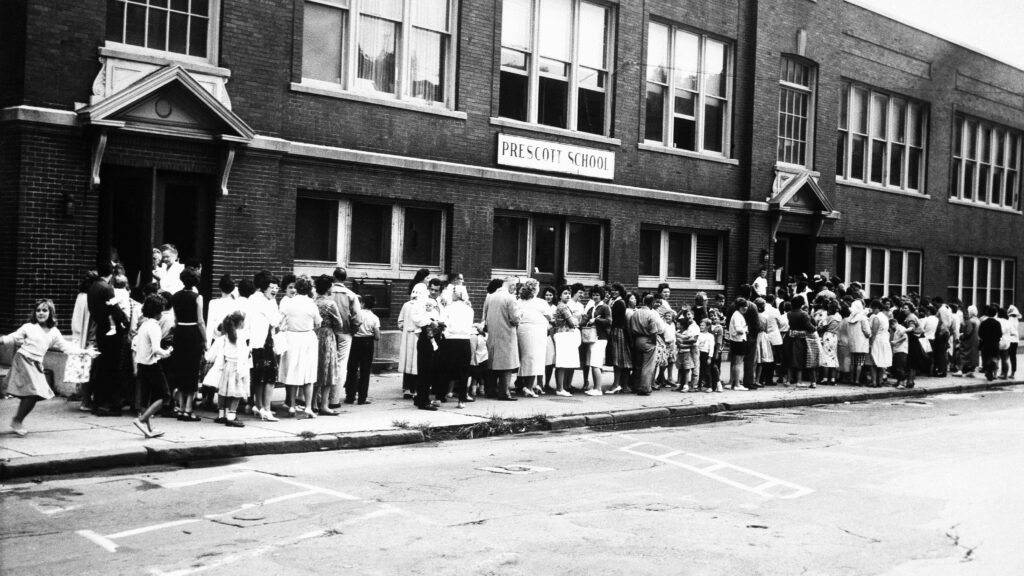Health
RFK Jr.’s Vaccine Claims Challenged by Experts and Data

Robert F. Kennedy Jr., the current health secretary, has made controversial claims asserting that vaccines do not save lives. In a post on September 29, 2023, he suggested that the decline in deaths from infectious diseases in the United States throughout the 20th century is not attributable to vaccines. Instead, he argues that improvements in sanitation and nutrition are the true reasons for increased life expectancy and reduced disease prevalence.
While Kennedy’s emphasis on sanitation and nutrition is valid, his assertions regarding vaccines are misleading. According to epidemiologists and demographers, the average life expectancy in the U.S. increased from approximately 47 years in 1900 to nearly 69 years by 1953, coinciding with the development of the polio vaccine. Significant advancements in sewage systems, clean water access, and nutrition were pivotal during this period. However, life expectancy has continued to rise, reaching nearly 80 years today. This latter improvement cannot be linked to sanitation or nutrition alone, as these factors have remained relatively stable since 1953.
Vaccines have played a critical role in enhancing Americans’ life expectancy, alongside other medical advancements such as smoking cessation and the development of antibiotics. The evidence shows that vaccines have significantly reduced both mortality and morbidity from infectious diseases. For instance, data from the U.S. Department of Health and Human Services indicates that childhood vaccines have prevented or are expected to prevent approximately 1.1 million deaths and 32 million hospitalizations among children born between 1994 and 2023.
Kennedy’s claims about the ineffectiveness of vaccines ignore the substantial impact they have had on public health. For example, in 1950, influenza and pneumonia were the sixth leading cause of death in the U.S. Today, they do not even rank among the top ten. Deaths from these diseases have decreased threefold since that time, largely due to the introduction of vaccines and antibiotics.
Vaccines Transform Public Health Outcomes
Vaccination campaigns have dramatically altered the landscape of infectious diseases. The polio vaccine, introduced in the 1950s, has saved countless individuals from paralysis. In 1952, there were nearly 58,000 polio cases reported, leading to approximately 21,000 paralyzed individuals annually. If the vaccine had not been developed, the U.S. would likely see over 150,000 polio cases each year today. By 1979, thanks to vaccination efforts, the number of polio paralysis cases had dropped to just eight annually.
Additionally, the Haemophilus influenzae type b (Hib) vaccine, approved in 1985, has almost completely eradicated the severe consequences associated with this bacterium, which previously resulted in around 10,000 cases of meningitis among children each year. The introduction of the measles vaccine in 1963 also transformed public health, leading to zero measles deaths in the U.S. by 1993 and the disease’s elimination by 2000. Vaccine hesitancy has since caused a resurgence of measles, with more than 1,500 confirmed cases and three deaths reported in 2025.
Kennedy’s assertion that there is no economic impact when vaccination rates decline ignores the broader societal consequences. A study shows that for every dollar spent on the measles, mumps, and rubella (MMR) vaccine, the U.S. healthcare system saves over $13. In contrast, the direct medical cost of a measles case today is approximately $1,793. Without widespread vaccination, the resurgence of diseases like measles could lead to an annual economic burden of around $1.79 billion in direct healthcare costs alone.
Vaccines not only prevent death but also significantly enhance the quality of life. They have effectively reduced severe impairments, such as paralysis and brain damage, caused by infectious diseases. Evidence from randomized clinical trials (RCTs) supports the effectiveness of vaccines, demonstrating an effectiveness rate of 80%-90% against paralytic polio and up to 98% against HPV-induced precancer. These figures do not account for the additional benefits of herd immunity, which amplifies the positive impact of vaccinations.
While Robert F. Kennedy Jr. raises valid points regarding sanitation and nutrition’s roles in public health, his claims about vaccines’ ineffectiveness are unfounded. Vaccines have undeniably saved lives, prevented severe health complications, and provided significant economic benefits. Public health experts continue to advocate for vaccination as a crucial component of disease prevention and overall health improvement. The discourse surrounding vaccines requires accurate information and a commitment to combating misinformation to protect public health effectively.
-

 Technology4 months ago
Technology4 months agoDiscover the Top 10 Calorie Counting Apps of 2025
-

 Health2 months ago
Health2 months agoBella Hadid Shares Health Update After Treatment for Lyme Disease
-

 Health3 months ago
Health3 months agoErin Bates Shares Recovery Update Following Sepsis Complications
-

 Technology3 weeks ago
Technology3 weeks agoDiscover 2025’s Top GPUs for Exceptional 4K Gaming Performance
-

 Technology4 months ago
Technology4 months agoDiscover How to Reverse Image Search Using ChatGPT Effortlessly
-

 Technology2 months ago
Technology2 months agoElectric Moto Influencer Surronster Arrested in Tijuana
-

 Technology4 months ago
Technology4 months agoMeta Initiates $60B AI Data Center Expansion, Starting in Ohio
-

 Technology4 months ago
Technology4 months agoRecovering a Suspended TikTok Account: A Step-by-Step Guide
-

 Health4 months ago
Health4 months agoTested: Rab Firewall Mountain Jacket Survives Harsh Conditions
-

 Lifestyle4 months ago
Lifestyle4 months agoBelton Family Reunites After Daughter Survives Hill Country Floods
-

 Technology3 months ago
Technology3 months agoUncovering the Top Five Most Challenging Motorcycles to Ride
-

 Technology4 weeks ago
Technology4 weeks agoDiscover the Best Wireless Earbuds for Every Lifestyle



















